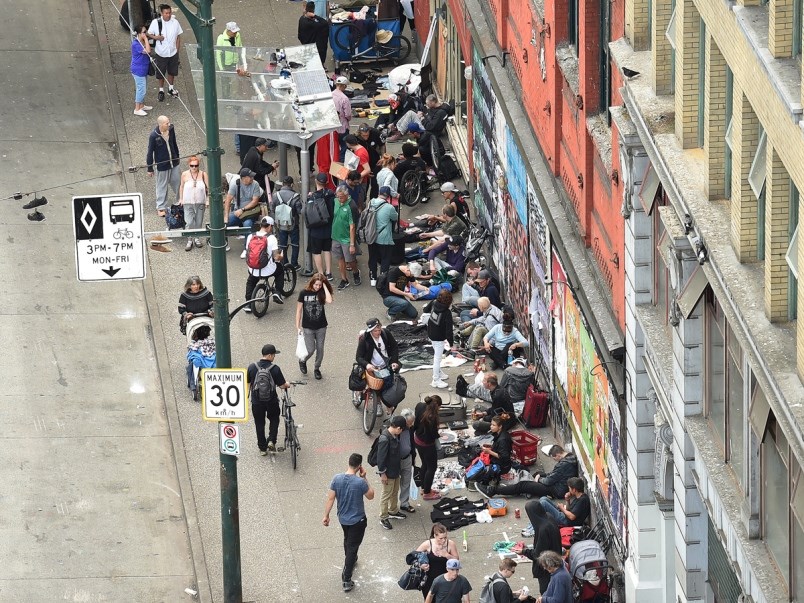Re: “,” Aug. 10.
Many things can be said about the DTES, but what we don’t speak about enough is the collaborative and solutions-oriented approach that the community has taken to tackle some of the most complex problems and to reshape the story of this community.
Exchange Inner City (EIC), a community backbone organization focused on community economic development in the DTES, coordinates the collaborative efforts of more than 50 organizations and individuals, representing local non-profits, social enterprise, businesses and residents. EIC and its collective members saw the need to develop a positive story about the community last summer. This came about after several EIC members highlighted the number of times they saw or interacted with tourists who’ve come through the area with shocked and confused looks on their faces while standing at the corner of Hastings and Carrall Street, or while riding on tourist buses through the community. EIC wondered what the tourists were being told or if they were left to develop their own narrative about the street activity happening along East Hastings.
These questions led to a partnership between EIC and Grayline Westcoast Sightseeing (GLWCS), with the help of Tourism Vancouver. EIC and GLWCS came together because we both wanted to provide tourists with a positive story about the DTES. The partnership led to the production of two distinct tools — a one-minute audio recording for GLWCS’s Hop On-Hop Off buses and a DTES guidebook for GLWCS operators, both developed by EIC and local residents and translated by GLWCS into multiple languages.
GLWCS also uses the guidebook to educate their tour guides on the history and present situation in the DTES. GLWCS’s staff are better informed about the community and can answer questions tourists may have about the DTES with historical facts, and examples of collaborative efforts made to address complex challenges and provide opportunities for residents.
Together, EIC and GLWCS have made efforts to shift the story of the DTES to a positive message for tourists. The messaging still recognizes the challenges the community faces but acknowledges the collaborative work among several organizations and residents to implement innovative community-based solutions that support residents to live full and rewarding lives.
EIC has also had the opportunity to share a community asset-based story of the DTES with tourists by providing walking tours for convention-goers, specifically the Sustainable Brands and Tamarack Conferences. The tours were centred around sharing the impacts that local community economic development initiatives and social enterprises had on the DTES. The opportunity arose to provide walking tours because of the support and connections made by Tourism Vancouver’s manager of sustainable destination development. This showcases another collaborative partnership between a local business and a DTES community-based organization to tell a positive story to tourists about the DTES.
Alisha Masongsong, acting director
Exchange Inner City
Ěý



